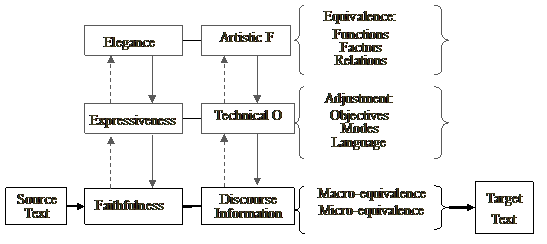Written by DU Jinbang
Guangdong University of Foreign Studies
Nov. 8, 2013
DIAAS (Discourse Information Analysis Based Assessment System) is an assessment system built for assessing legal translation quality. The present introduction is mainly based on the author’s previous study which was presented at the Second International Conference on Law, Translation and Culture (Hong Kong, June 1)(DU 2012).
Legal translation quality assessment has, for long, been one of the main tasks of legal translation study. Up to now, there are no valid criteria for assessing legal translation quality, which puts legal translation quality assessment at an impasse. The principal framework introduced here has the potential to address this problem. The framework incorporates Yan Fu’s Three Principles, the discourse information theory (DIT) and other theories, within which different aspects of the process of legal translation can be examined and the quality of translation measured.
The framework comprises three modules between the source text and the target text. The first module is Yan Fu’s Three Principles which form a hierarchy, with Faithfulness at the basic level, Expressiveness at the second level and Elegance at the highest level. Such three levels are embodied in the three corresponding phases of management in the second module i.e., Discourse information (processing), Technical Operation, and Artistic fulfillment. The third module supplies specifics of the three levels in the second module, and provides the space where different theories and concepts can be integrated. At the basic level in the third module, Macro-equivalence and Micro-equivalence concerning information are the uttermost. At the second level, Adjustment arises as the dominant. At the highest level, Equivalence is to be considered which includes various functions, factors and relations.

Figure 1 The Principal Framework of DIAAS [Du 2012]
Note: F means Fulfillment; O means Operation.
In the framework, information transfer between the source and target discourses is taken as an effective indicator of translation quality. With discourse information analysis, translation quality can be quantitatively evaluated. The higher the levels of management, the more subjective they will be. However, subjectivity can be dealt with effectively in this framework.
Reference
Du, Jinbang 2012. A study on assessment of legal translation quality: from the perspective of discourse information, The Second International Conference on Law, Translation and Culture Hong Kong, June
